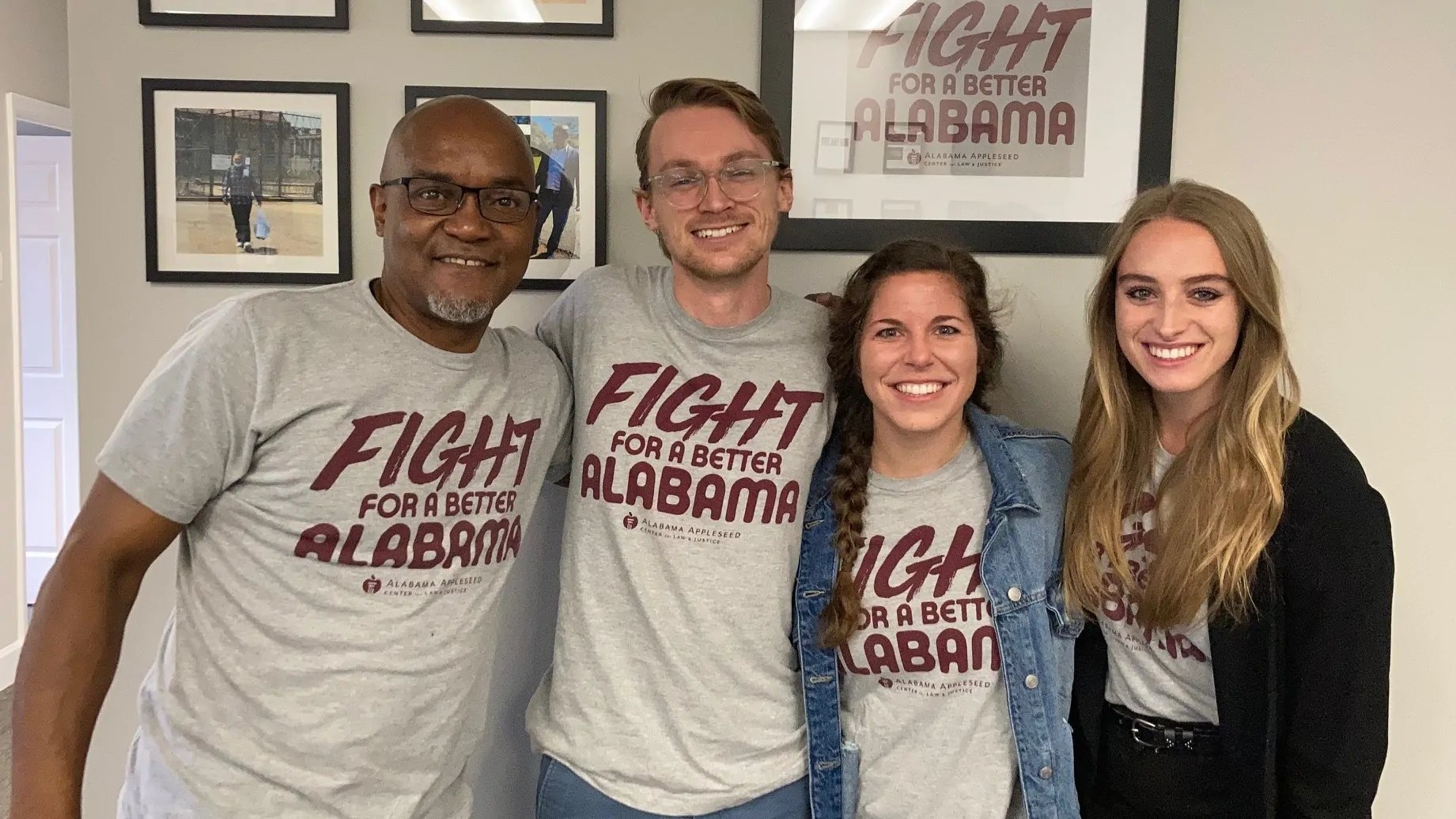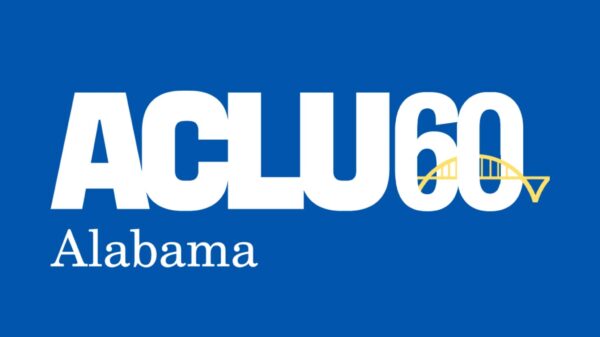The Montgomery nonprofit Alabama Appleseed’s work has freed six men who were serving life sentences in Alabama under the state’s harsh sentencing laws, and the scope of work has only continued to grow thanks to grants from the National Football League, which on Wednesday announced the nonprofit would get a grant renewal.
The NFL on Wednesday announced $6.5 million in social justice grant renewals to 21 nonprofit organizations as part of its Inspire Change initiative.
“After more than two years of partnership, the NFL family feels extremely lucky to continue working with Alabama Appleseed as they expand their reach doing important work in advocating for incarcerated people and working to free those serving harsh and unjustified sentences in Alabama,” said Anna Isaacson, senior vice president of social responsibility for the National Football League, in a statement to APR. “We are committed to helping grow the impact and grassroots approach to criminal justice reform that Carla and the entire Alabama Appleseed team have championed.”
Those grants are part of $244 million in total social justice funding to 37 since 2018. Of those 37 partners, 21 are receiving grant renewals, including Alabama Appleseed.
“We couldn’t have taken on these individual cases without the NFL support,” Carla Crowder, Alabama Appleseed’s executive director, told APR recently.
Alabama Appleseed in 2021 was selected as one of nine organizations to receive a portion of the more than $160 million in grants awarded that year. The Alabama nonprofit first received an NFL grant in January 2020 after a coalition of players suggested Alabama Appleseed be selected.
“We had traditionally been more on the research and policy side of things, and we wanted to find real human examples of both the crisis in the prisons and the problems with excessive sentencing,” Crowder said. “We couldn’t do that without representing people.”
The NFL grant made that possible, Crowder explained, and to date Appleseed has freed six men who were serving life sentences under Alabama’s harsh Habitual Felony Offender Act, who served a combined 187 years in prison.
Through the NFL grant Appleseed hired two staff attorneys, began re-entry work to help those recently released navigate life outside prison and have continued to investigate the cases of more incarcerated people.
The nonprofit also hired a social worker and a re-entry specialist to aid in the recovery work, which not only serves Appleseed’s clients but clients from three outside law firms, which this month reached out asking for that help, Crowder explained.
Among the hires was Ronald McKeithen, the first client released with NFL support who works as Appleseed’s re-entry coordinator. He’d served 37 years following a 1984 conviction on first-degree robbery, and was sentenced to life without the possibility of parole under the state’s Habitual Felony Offender Act.
“All six of us expected to die in there…You helped save a life. You gave Carla and Appleseed ammunition to just walk in there and take the noose off a guy’s neck. I appreciate you. I really appreciate you,” McKeithen told Detroit linebacker Trey Flowers during a briefing with APR in December 2021. Flowers narrated the NFL’s Alabama Appleseed commercial.
McKeithen’s understanding of what those recently released people are going through, and his ability to work with them so effectively, has expanded the nonprofit’s scope of work, Crowder explained, and re-entry work is critical.
“There’s a huge re-entry need in Alabama, particularly for folks who have served decades,” Crowder said.
During the NFL’s 2021 season the league aired commercials highlighting Alabama Appleseed’s work, which raised the nonprofit’s profile.
“We heard from people across the country. We were able to get unexpected support from places as far away as Washington State, Ohio,” Drowder said. “having such a high profile partner to lift up the work of such a small organization has been incredible for us.”
What Alabama Appleseed is proving with the NFL grant is that people can be incarcerated for decades, and with support, do incredibly well outside of prison, Crowder said.
“We don’t need to throw people away forever,” she said. “We cannot give up on people. We are seeing men who lived through horrifically violent and inhumane prisons emerge into the free world and thrive.”
Two of Appleseed’s clients cannot work due to health reasons, but four clients have full time jobs and paid taxes this year, Crowder said.
“Sure, they need support, they need help navigating this strange new world. And NFL support has not only permitted us to do the legal work, but develop a re-entry program as well,” Crowder said.























































